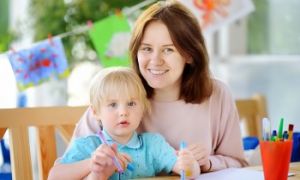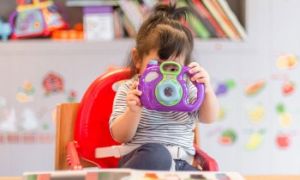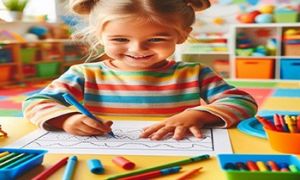The transition from preschool to kindergarten isn’t just academic—it’s deeply social. As children move from parallel play to collaborative learning, they begin to form friendships, navigate conflict, and express their unique identities. These social and personal skills are the bedrock of emotional wellbeing and school readiness.
Research shows that social competence in early childhood predicts academic success more reliably than IQ scores. Skills like empathy, cooperation, and self-regulation help children thrive in group settings, manage transitions, and build positive relationships with peers and educators.
Key Skills to Foster
Cooperation & Turn-Taking
Children learn to share space, materials, and ideas. Activities like group storytelling, building projects, and turn-based games (e.g., “Roll the Ball”) teach patience and teamwork.
Communication
Preschoolers begin to express needs, negotiate roles, and listen to others. Dramatic play, puppet shows, and emotion cards help build both verbal and nonverbal communication.
Conflict Resolution
Kindergarten introduces more complex social dynamics. Educators can scaffold peer mediation using scripts like “I feel ___ when ___” or “Can we find a solution together?”
Empathy & Emotional Literacy
Children start to recognize and respond to others’ feelings. Books, songs, and reflective conversations (“How do you think they felt?”) nurture emotional insight.
Independence & Identity
From choosing activities to managing belongings, children build autonomy. Visual schedules, choice boards, and self-help routines (e.g., packing bags) support personal growth.
Strategies for Educators
- Model positive social behavior: Children learn by watching. Use kind language, active listening, and respectful conflict resolution.
- Facilitate small group play: Playdates or small group activities reduce overwhelm and foster deeper connections.
- Create safe spaces for emotion coaching: Cozy corners, emotion charts, and sensory tools help children regulate and reflect.
- Celebrate strengths: Acknowledge effort, kindness, and problem-solving to build self-esteem and motivation.
Examples of Building Social & Personal Skills
Cooperation & Turn-Taking
- Roll the Ball Game: Children sit in a circle and gently roll a ball to one another. This simple activity teaches turn-taking, patience, and nonverbal communication.
- Shared Construction Zones: In preschool settings, educators set up collaborative block areas where children co-design structures, negotiate roles, and solve spatial problems together.
Communication & Expression
- Emotion Cards & Puppet Play: Children use puppets or visual cards to act out feelings like “frustrated,” “excited,” or “nervous,” helping them name emotions and practice empathy.
- “I Feel” Scripts: Educators model phrases like “I feel sad when…” to scaffold conflict resolution and emotional literacy.
Conflict Resolution
- Peace Tables: Some kindergartens introduce a small table with calming tools (e.g., sand timers, emotion charts) where children can sit together and resolve disagreements with adult support.
- Story-Based Problem Solving: Educators read books like Hands Are Not for Hitting and invite children to role-play alternative solutions to common conflicts.
Empathy & Perspective-Taking
- Kindness Jars: Children add a bead or token when they notice a peer being kind. This visual reinforcement builds awareness of others’ feelings and actions.
- “How Would You Feel?” Circles: During group time, educators pose scenarios like “What if your friend didn’t share?” and guide children to reflect on emotional responses.
Independence & Identity
- Visual Schedules: Children use picture-based routines to manage transitions independently—like packing bags, toileting, or choosing activities.
- All About Me Books: Each child creates a personal book with drawings, photos, and captions about their family, interests, and strengths. These are shared during group time to build confidence and belonging.
Social and personal skills aren’t “extra”—they’re essential. As children move from preschool to kindergarten, they’re not just learning letters and numbers—they’re learning how to be part of a community. When we nurture these skills with intention and warmth, we lay the foundation for confident, compassionate learners.
Further Reading
Supporting Children's Transition To School
How To Approach School Readiness Planning For Preschoolers
School Readiness In Early Childhood
School Readiness Checklist Aligned To EYLF Outcomes
Play School's Ready, Set, Big School
Developing Skills For Children Starting Big School


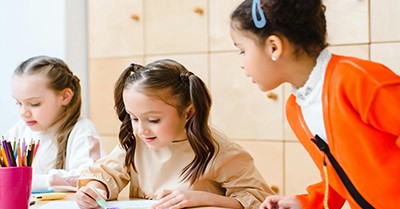
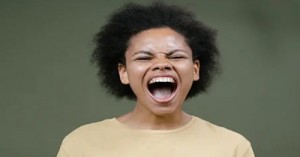
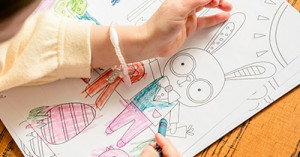


 As an Educator in Australia, your pay rate falls under the Children’s Services Award 2010. This award states the minimum amount that an employer can
As an Educator in Australia, your pay rate falls under the Children’s Services Award 2010. This award states the minimum amount that an employer can When working as a qualified Early Childhood Teacher (with a university degree) within a service, your rate of pay will come from the Educational Services
When working as a qualified Early Childhood Teacher (with a university degree) within a service, your rate of pay will come from the Educational Services When working as a Diploma Qualified Educator your pay rate is from the Children's Services Award 2010. This Award states your minimum rate of pay
When working as a Diploma Qualified Educator your pay rate is from the Children's Services Award 2010. This Award states your minimum rate of pay When working as a Cert 3 Qualified Educator, your pay rate is from the Children's Services Award 2010. This Award states your minimum rate of
When working as a Cert 3 Qualified Educator, your pay rate is from the Children's Services Award 2010. This Award states your minimum rate of Educational Leaders play a crucial role in their early childhood service by ensuring that the educational program aligns with best practices and supports the holistic
Educational Leaders play a crucial role in their early childhood service by ensuring that the educational program aligns with best practices and supports the holistic In early childhood education and care, ratios are more than a technicality—they are a frontline safeguard. Every child deserves responsive supervision, emotional connection, and developmental
In early childhood education and care, ratios are more than a technicality—they are a frontline safeguard. Every child deserves responsive supervision, emotional connection, and developmental With the new national child safety reforms kicking in on 1 September 2025, early childhood services like yours have a real opportunity to lead the
With the new national child safety reforms kicking in on 1 September 2025, early childhood services like yours have a real opportunity to lead the Here’s a comprehensive Mobile Phone and Smart Watch Policy tailored for early childhood education and care (ECEC) services in Australia, aligned with the latest 2025
Here’s a comprehensive Mobile Phone and Smart Watch Policy tailored for early childhood education and care (ECEC) services in Australia, aligned with the latest 2025 The Sea of Fish Challenge is a national initiative that invites children, educators, families, and communities to create and display fish artworks as a symbol
The Sea of Fish Challenge is a national initiative that invites children, educators, families, and communities to create and display fish artworks as a symbol Across the early childhood education and care sector, educators are sounding the alarm: current staffing ratios are insufficient to deliver safe, meaningful, and developmentally appropriate
Across the early childhood education and care sector, educators are sounding the alarm: current staffing ratios are insufficient to deliver safe, meaningful, and developmentally appropriate